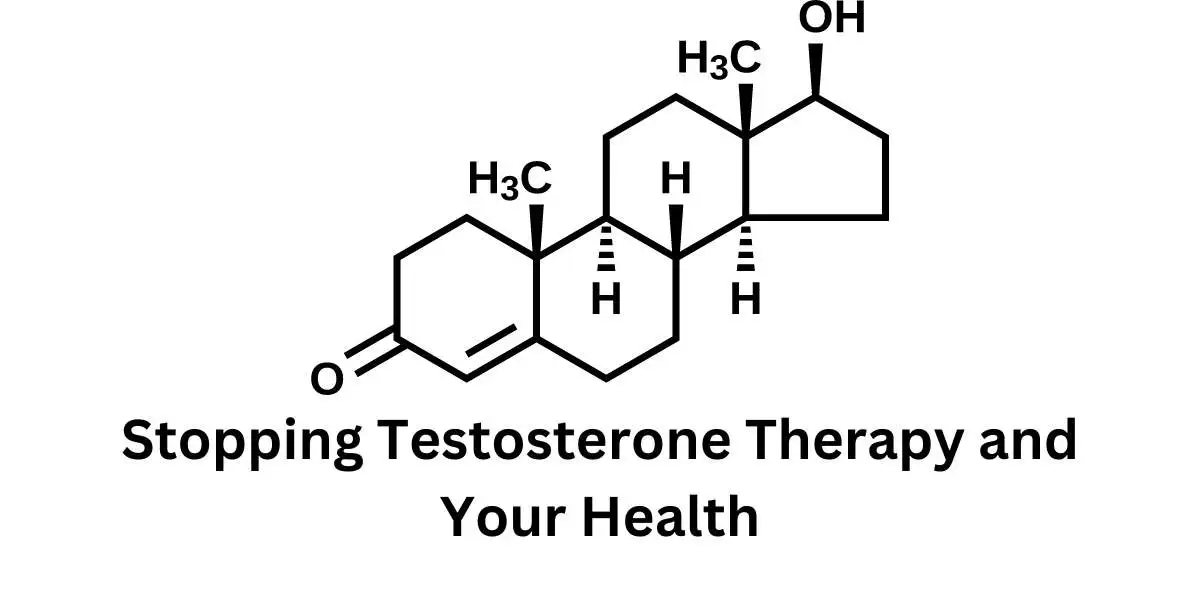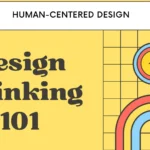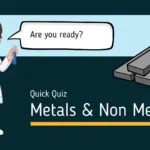Introduction
If you’ve been getting stopping testosterone therapy because of low levels and are thinking about stopping, it’s extremely important to understand what that could mean for you; this guide is going to help you figure out all the results you might face, how to deal with those effects, and what you need to think about before you decide to quit the treatment.
Once you stop, the hermetic result of this might go several ways – good or bad. By digging into this guide, one may learn in the knowledge that explains solely focused on stopping testosterone therapy and how to navigate the changes that come with it.
It is moreover apparent to you and I that stopping testosterone therapy can cause major differences. Continuing may not always be a good choice or even an option for everyone, because even though testosterone treatment could extremely improve someone’s energy, mood, and life, it doesn’t last forever.
Sometimes, one, if they so choose, may ponder quitting due to advice from a doctor, their personal decision, or various other reasons.
You’re stopping testosterone therapy. Somewhat raises several questions and worries. To begin with, what will happen next? What do you need to be ready for? There can possibly be gratification in your knowing that this piece is solely focused on breaking that down for you, so you’re not wandering in the dark.
From the beginning, we are here to help you. We delve deeply into exploring this idea thoroughly–providing you the advice and insight necessary to successfully deal with what’s ahead; the upshot of this entire piece is, clearly, stopping testosterone therapy that all vital details come courtesy of us – everything from immediate physical and mental effects to taking care of your health in the future. We hope this piece may enlighten you on everything to expect once you begin.

What is Testosterone Therapy?
People who don’t have enough of the needed hormone get testosterone therapy. It’s given to help with things like feeling very sleepy, not being interested in love stories, and when someone’s feelings are scattered. Unquestionably so, a can include getting shots, putting stickers on your skin, applying gels, or even using pellets. One can see, stopping testosterone therapy one mustn’t deny that this is how the therapy works to tackle these problems.
Testosterone is extremely important because it helps people look and feel more like a man, keeps our muscles strong, stopping testosterone therapy and sorts out how we feel and how much energy we have. It’s made mainly in a individual’s testicles but also a bit in ladies’ ovaries and adrenal glands.
Now, when someone doesn’t have enough of this hormone, they may potentially start feeling kind of strange. And it could really cause problems with how good their life is: they can think about what it’s like when the body isn’t making enough testosterone naturally. One, stopping testosterone therapy if they so choose, may also ponder the effects it has on being able to build muscle and why some people might find their mood tanking or energy zapping.
Next we engage in an intense examination of testosterone therapy, which is solely focused on getting hormone levels back to normal. It’s extremely helpful for people who have problems because their body isn’t making enough of a special hormone called testosterone; though we often think it’s just for men, stopping testosterone therapy women with certain hormone problems need it too.
There is, not surprisingly, a chance to help anyone needing it, thanks to special treatment plans made just for them. Each plan is specially made to fit each person’s needs, making sure they receive the exact type and amount of testosterone they require; this way, stopping testosterone therapy everyone who goes through the therapy gets exactly what they need based on their own situation.

Benefits of Testosterone Therapy
Physical Benefits
It might be tough to understand–but people get a lot more energy from testosterone therapy. In addition it makes you physically stronger and your workout sessions turn out significantly better because you end up with more muscle and less fat. Also, stopping testosterone therapy it doesn’t simply make you look better–but your bones get stronger too.
One mustn’t deny that this material can, strangely enough, stopping testosterone therapy improve how well you can handle daily things and keep you feeling healthier. And lastly, it may seem hard to believe but we can take comfort in knowing that it makes your muscles stronger and reduces fat.
We can clearly see that it’s very obvious that taking testosterone medicine might help you live longer and have a better chance at life, stopping testosterone therapy all things considered. Keeping your cholesterol in check and lowering the risk of having heart problems are both things that can happen when your testosterone levels are just right.
Not only that–but it also makes your bones stronger, stopping testosterone therapy which stops you from getting a disease where your bones become weak or break more quickly. The concrete and clear culmination of this is that testosterone therapy doesn’t simply help with one thing; it connects you by improving your health in several big ways.
Mental and Emotional Benefits
When people slightly adjust their testosterone levels, it’s not only about boosting muscle strength or feeling more energetic; their brains start to cheer up as well. They feel happier and don’t get as stressed or sad. You really can’t ignore how important testosterone is for keeping our minds balanced since it tinkers with brain chemicals that determine our mood. With the right amount of testosterone, stopping testosterone therapy you usually see individuals becoming significantly more chill and optimistic about everything.
And in the final analysis, one finds that strengthening drastically your testosterone doesn’t simply excite your body—it also strengthens how you mentally and emotionally tackle life.
There is unsurprisingly a potential to shift not only physical but also emotional and psychological states to the better side.
Almost inevitably, stopping testosterone therapy we see that people might think very clearly and have a strong memory, paying attention, and understanding material well if they try testosterone therapy.
Because it makes their mood better and helps them think better, they end up doing more in their day and having a nicer experience: someone dealing with fuzzy thinking or feeling less sharp than usual because their testosterone was low could find this especially helpful. And we may thus possibly conclude, stopping testosterone therapy those who start the therapy can really notice they’re much smarter and can understand things significantly better.
Sexual Health Benefits
One can easily imagine that a benefit of testosterone therapy improves your sex life a lot. When people’s libido goes up, stopping testosterone therapy intimate connections can get significantly better, and people feel happier about themselves. Since not feeling much into sex is usually because of low testosterone levels, getting those levels back up can make your sex life a lot more fun and satisfying.
It is moreover apparent to you and I that fixing those levels is a large plus.
Men going through testosterone therapy usually feel better in many ways, such as having harder and longer-lasting erections and experiencing more enjoyable feelings during intimate moments; stopping testosterone therapy this can make them less stressed and more confident about being close with someone.
For women, this therapy can make them more excited and responsive, making sex better for them too; the upshot of this entire piece is, clearly, stopping testosterone therapy that these improvements are important because they can make personal and intimate relationships significantly better. Although it may seem surprising, enhancing libido is not only about sex. It regards making overall well-being and the closeness between people better.

Reasons for Stopping Testosterone Therapy
Medical Reasons
If you have heart disease or a history of stroke, your doctor may tell you to stop your testosterone therapy because it could increase your risk of having more heart problems. Similarly, stopping testosterone therapy because prostate cancer can actually get worse with higher levels of testosterone, people with this issue might have to quit the treatment too.
Health conditions such as these could mean you need to drop testosterone therapy–but there can possibly be gratification in your knowing that these decisions are for the sake of your health. And in the final analysis, stopping testosterone therapy one finds that it’s solely focused on keeping you comfortable, safe, and healthy.
Going to the doctor if you’re on testosterone therapy is a good idea since keeping track is important. Sometimes, if you have serious problems with your health — one can see — and there are no doubts about it — big health issues like very bad sleep apnea, stopping testosterone therapy liver problems, or having too many red blood cells can make you have to stop the therapy.
This stands because putting more testosterone into the body might just make these problems worse, turning into serious health issues if they’re not managed right: seems simple? The main point of this whole piece is, clearly, stopping testosterone therapy that keeping on track with these risks lets you get through therapy in the best shape possible.
Personal Choices
I believe, as you might hold credence also, that some people might prefer to quit testosterone therapy because they’re interested in managing their testosterone naturally with items such as diet, stopping testosterone therapy working out, and finding ways to pause.
It is moreover apparent to you and I that they may potentially have noticed the good material from the therapy isn’t getting any better and decide to stop to check how their body handles things on its own. Or, stopping testosterone therapy their changing lives and preferences just make them want to back off from the therapy.
Also, going for a large amount of doctor’s visits and having to stick with treatment like shots, patches, or creams might feel like too much for some people, stopping testosterone therapy and they think it’s not worth it; they really value keeping things natural or worry about having to depend on hormone therapy for a long time which makes them consider stopping.
In the end, backtracking on therapy is a very personal decision. One may immerse oneself in the knowledge that dropping the treatment should be spoken with a doctor to make sure it’s comfortable, safe, stopping testosterone therapy and the right move; the hermetic result of this is choosing what’s best for themselves based on what matters most to them and their health.
Financial and Accessibility Issues
For several people, the price of testosterone treatment is way too high. It’s an enormous roadblock. When you don’t have insurance giving assistance, spending money for items such as injections, patches, gels, stopping testosterone therapy or pellets all the time can cost you a lot of money. And even people with insurance struggle because of co-pays and what they have to pay on their own, and it gets even worse if you need the therapy for a long time.
Because of financial problems, some people might have to stop the treatment even though it really helps them; the concrete and clear culmination of this is that financial issues are a massive problem for people needing this treatment; the hermetic result of this scenario is that not everyone can keep up with the costs, stopping testosterone therapy cutting them off from something beneficial.
One mustn’t deny that dealing with healthcare material can be extremely tough. Especially when you can’t simply get to a location when you need it and you have so many other things to do. Imagine you need to see a doctor a lot or you’re on some special treatments, such as taking extra male hormones, stopping testosterone therapy and there’s –in actuality– No doc near you or the health services around are simply terrible.
Now, add that to a super busy schedule or having to work really hard just to make an appointment; that’s what some people have to go through and it’s absolutely real. Because of all this disaster, a significant number of people might get so stressed out they think about just giving up on their treatment or scrambling to find another way to deal with it; this situation needs attention because, stopping testosterone therapy note that fitting healthcare into already busy lives or running across town for appointments pushes people to their limits.
In wrapping this up, stopping testosterone therapy a sharp reader like you gets that many hurdles in accessing healthcare so aren’t simple annoyances. They’re really hard to figure out. Putting the spotlight on the semantics – trying to figure all this out is very difficult but someone must do it to understand how serious these issues are for many people.

Immediate Effects of Stopping Testosterone Therapy
Physical Changes
One can see — unquestionably so — that when someone stops their testosterone therapy, there are major shifts in their body since their hormone level starts jumbling again.
Almost inevitably, we see a drop in muscle mass and strength since testosterone is basically the VIP for keeping those muscles strong and intact; this drop in muscle makes them feel weak or extremely tired, especially if they’re trying to be active or do any essentially exercise.
There is a profound and deep-seated certainty that when testosterone levels drop, our bodies start to store more fat, especially around the belly and chest. This can greatly alter our appearance and even affect how much we believe in ourselves. It may seem hard to believe but we can take comfort in understanding that it’s all because testosterone is behind how our bodies deal with fat.
Although it may seem strange, when people stop testosterone therapy, they may potentially notice their skin feels different and sweats a lot or not so much because of unusual changes in body temperature; the manner these changes show up can be different for everybody. Items such as how old someone is, what their hormone levels are to start with, and how healthy they are overall play an enormous role.
And in the final part, one finds that it’s very important for these people to get the information from their doctors on how to successfully deal with these changes properly.
Stopping testosterone therapy without thinking it through is a really bad idea because it tinkers with your sexual, mental, and physical well-being.
If you just stop the therapy, you’ll likely run into major issues with your sex drive and performance, which could disaster with your head and how you see yourself; the lack of testosterone might even make you extremely depressed or anxious, and nobody should have to deal with that sort of struggle without proper support.
And in the final analysis, one finds that the concrete and clear culmination of this is how quitting testosterone therapy cold turkey can truly wreak havoc on a person’s overall health, underscoring the incredible weightiness of planning and care throughout the process.
On the other hand, regarding your physical well-being, there’s an obvious downslide too; the bones can get weaker, putting you at a high risk for breaks and osteoporosis, and you might find yourself not having as much energy as before, both in terms of muscle strength and endurance; to battle these declines, understanding the importance of living a healthy lifestyle by including plenty of nutrients that boost testosterone levels could be very helpful.
Pumping some iron and other exercises that build strength help you stop muscle loss and low energy. When focusing on controlling those emotional and mood swings, practicing mindfulness like doing yoga or meditation is a smart choice, and it’s also important to remember that talking to a therapist can help calm those strong feelings. Definitively, there is unsurprisingly a potential to counteract or ease these wearisome offshoots of stopping testosterone therapy by having solid plans for both your body and mind.
After stopping therapy, your journey xxx stopping there.
Output:
After stopping therapy, your journey does not end there. You must keep an eye on your health with regular doctor check-ups. It’s very important because it helps to find any strange changes in your hormone levels at the beginning.
Now, about moving and staying active – listen, you must try new and different options with both lifting weights and getting your heart rate up. Doing activities like push-ups, fast running, or those quick exercises –, where you feel very happy sometimes and then not happy other times? Those can really ramp up your testosterone and make you feel amazing.
And we may thus possibly conclude on the diet front – what you eat makes a difference. Opting for foods full of healthy meat, fats that are good for you, and vegetables? In addition, some certain snacks such as oysters or almonds help your body make more testosterone.
As for staying peaceful in your life, try taking deep breaths, writing down your thoughts, or just relaxing in nature (using daily planners might also help with stress). It is also clear to you and me, following a good eating and drinking plan is a smart idea; choose foods full of zinc and vitamin D, and avoid drinking too much alcohol.
To sum it all up, the heart of what we are discussing is how to successfully deal with going off testosterone treatment and staying sane. Now, getting a good night’s sleep is very important.
Not clocking in 7-9 hours can disaster with your testosterone levels. If you’re feeling unfocused or sort of down, it’s important to have a small talk with someone who understands how the brain works, like a mental health expert. CBT, or the way of thinking to help with thoughts, can really do wonders for mood issues.
And if you’re having a tough time, speaking to a psychologist or counselor isn’t a bad move; they’ve got the tools and the knowledge to help you deal with the range of emotions you might be feeling. Now, onto who’s got your back during all this. It’s extremely important to have some solid people – think friends, family, or special groups – who you can lean on.
And we may thus possibly come up with a direct conclusion that your group of friends doesn’t have to be right next to you; thanks to the internet, there are online communities and support groups that can give that I understand you feeling, which is pretty spectacular when you’re navigating life after therapy.
Stopping your testosterone therapy is of significant consequence because it can affect you in many disparate manners – physically, emotionally, and psychologically.
To successfully deal with these changes well, understanding them and getting ready to deal with them is key; there’s always a intelligent and informed move to make sure you’re keeping your health and happiness in front order.
Herbs like oregano, fenugreek, and ginseng have been approved for helping with testosterone levels and keeping you feeling good all-around.
Before you decide something too quickly or make any moves, talking with your healthcare provider is very important; they are the experts who can guide you through the best next steps for you, considering what your body needs and what goals you have for your health. Now, discussing more options, don’t limit yourself.
Looking at other treatments your doctor suggests, which could include hormone replacement or different medications, might actually be a better fit for your situation.
There comes a point where you might notice that feeling really sleepy, getting sad, or not feeling excited about your love life like before are getting in the way — a lot. When these signals start to make you feel sad, it may seem hard to believe but we can take a hint that looking back into therapy could help.
Last but certainly essential: something so interesting as herbs – like basil, fenugreek, ginseng – well, in their shadows, there is unsurprisingly a potential to boost those testosterone levels and enhance overall zest for life: approach options like these as updates to keep your health approach strong and effective. Always discuss with the experts before deciding because staying informed is staying safe.
FOR MORE
Faqs
If you stop using testosterone therapy, will you probably gain some weight?
When you quit the hormone help, there’s a good chance you’ll see the scale creeping up. This happens when your muscle mass decreases and your body doesn’t use food as quickly–but eating right and staying active can keep that in check.
Is your testosterone going to return to normal quickly after you stop the treatment?
It’s not the same for everybody. For some, it’s a few weeks, and for others, it’s months before things normalize.
Patience is key.
Are you wondering if you can raise your T-levels on your own without help?
Of course. You can reconfigure what you eat, move more, and try some herbs that give your hormones a little boost; thinking about whether killing your testosterone regimen might disaster with having young people? The answer’s yes. It can make producing sperm a struggle, affecting how fertile you can be. It’s crucial to speak this out with your doctor if babies are on your brain.
And when should you think about starting testosterone therapy again?
Pay attention because it’s pretty simple: if you’re really tired all the time, feeling sad, losing interest in fun activities, or you notice you’re not as strong or your bones feel weaker, then it’s time to talk to your doctor. All this to say, tinkering with testosterone therapy can have some effects, unquestionably so. But, buddy, it is moreover apparent to you and I that joining arms with your healthcare group for advice is a solid plan of action.










